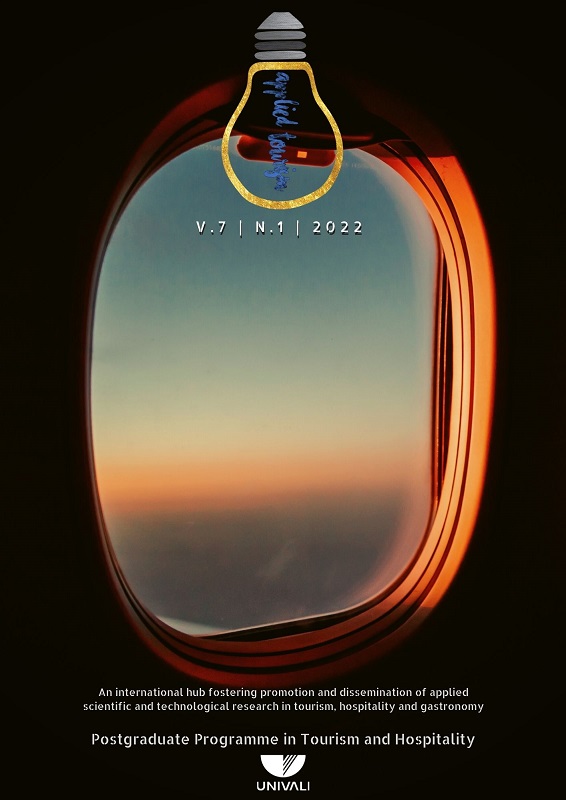

The text presents a report of experience of a socio-educational action entitled Tourism Incentive Project (PROINTUR) developed by a group of students in the 6th period of the Bachelor in Tourism Course of the Federal University of Maranhão (UFMA), São Bernardo campus. The action was developed at the Deborah Correia Lima Teaching Center, and its main goal was to raise awareness among the school community regarding the importance of tourism as a socio-historical, spatial and cultural phenomenon, a factor for promoting economic growth, and an agent for social inclusion. The importance of tourism for community development is discussed, as well as tourism education actions, especially in the school context. This is followed by a presentation of the results achieved by the project. The work was based on bibliographic research, addressing the relationship between tourism and tourism education (Rabelo, 1998; Ribas, 2008; Fonseca Filho, 2007) and by pedagogical activities such as lectures, group dynamics and conversation circles with tourism and its production chain, tourist potential, and local development as the generating themes. The results of the intervention carried out show that the school community has knowledge about the importance of tourism; however, it has a restricted view of the tourist potential of the municipality of São Bernardo and the functions exercised by the bachelors degree in tourism as a transforming agent of the local reality.




Dias, G. F. (2006). Interdisciplinary environmental education activities: innovative environmental education practices. 2. ed. São Paulo: Gaia.
Fonseca Filho, A. S. (2007). Education and Tourism: Reflections for Development of a Tourism Education. Brazilian Journal of Tourism Research, 1(1), 5-33.
Gastal, S.; Moesch, M. (2007). Tourism, Public Policies and Citizenship. São Paulo: Aleph.
Peccatiello, A. F. O. (2005). Pedagogical tourism as a teaching-learning strategy from the perspective of the National Curriculum Parameters - 3rd and 4th cycles of elementary education. Global Tourism Magazine. São Paulo.
Portuguez, A. P. (2001). Consumption and space: tourism, leisure and other topics. São Paulo: Roca.
Rebelo, S. M. (1998). Municipal Plan for Tourism Education / PMET: a model for Brazilian municipalities with tourism potential. Tourism Vision and Action Magazine. Balneário Camboriú (SC), 1(2), 89-106.
Ribas, M. H. (2008). Education for tourism. A view from the Professor, 5(1), 9-20. Available at: https://revistas2.uepg.br//index.php/olhardeprofessor/article/view/1372.
Silva, G. B.; Maracajá, K. F. (2012). Environmental education and tourism education in elementary school at the Quintino Bocaiúva State School Palmira Barbosa Municipal School in Santa Cruz (RN). Virtual Tourism. Rio de Janeiro, 12 (3), 272-286.




Copyright (c) 2024 Alanny Davila Silva Amador, Karoliny Diniz Carvalho

Este trabalho está licenciado sob uma licença Creative Commons Attribution-ShareAlike 4.0 International License.






Uma plataforma internacional com a finalidade de promover e disseminar a pesquisa científica e tecnológica aplicada em turismo, hospitalidade e gastronomia.

